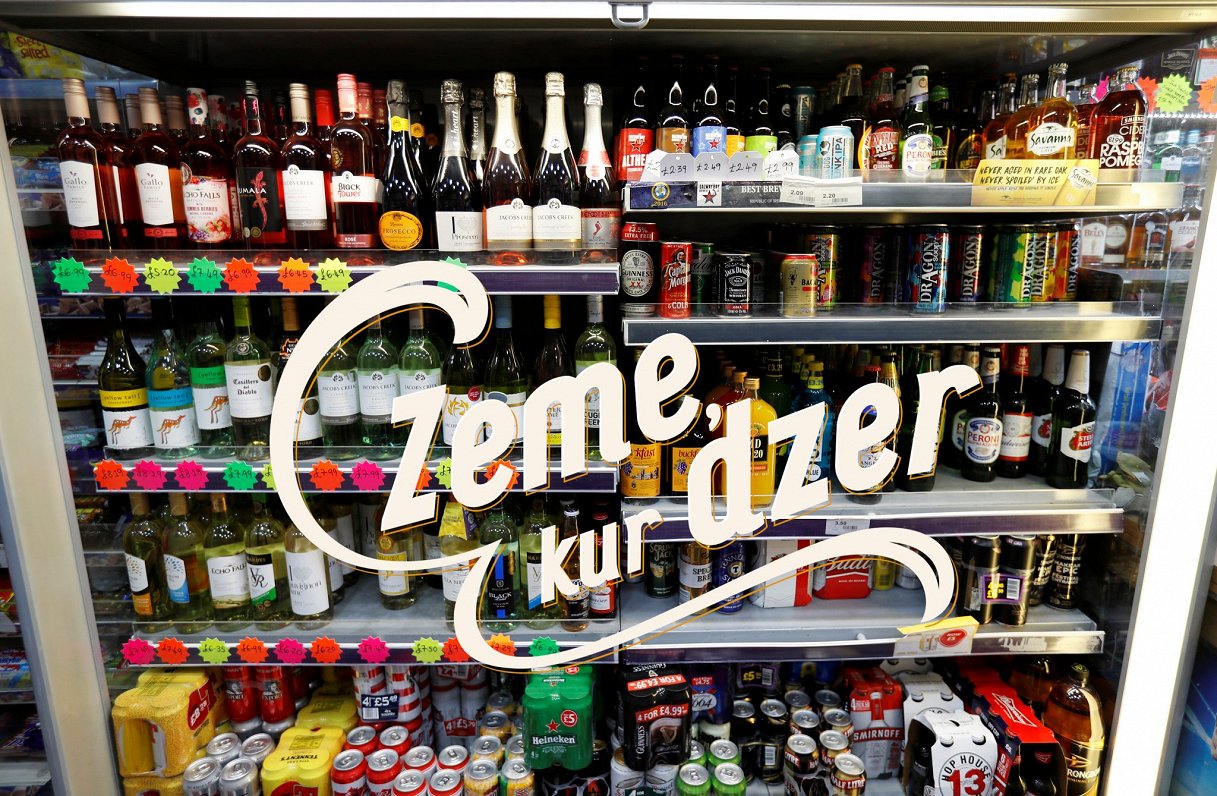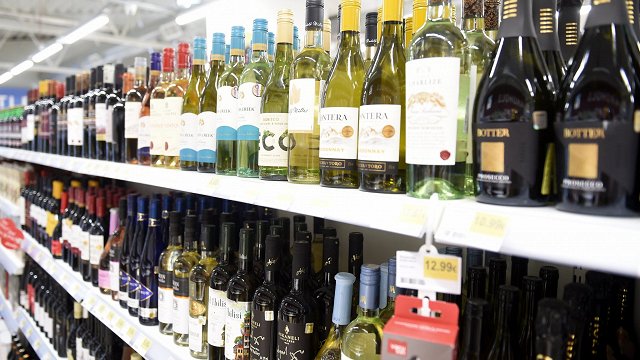Where and how can alcohol be advertised?
Under current laws, beer and wine may be advertised on electronic media; telemarketing is also allowed, but other alcoholic beverages may not be advertised on radio and television. Alcohol may also be advertised in magazines and newspapers, but not on external pages or covers; it is also prohibited to promote alcohol in environmental advertisements – stalls, signs, and screens.
Various restrictions are also imposed on the content of alcohol advertising, such as not expressing the belief that alcoholic beverages have an incentive or calming effect or help solve personal problems; people consuming alcohol should not be portrayed, either.
What are the planned marketing restrictions?
There is no intention of banning alcohol advertising on the internet, even though the Ministry of Health once had such a commitment. If amendments offered by the Ministry of Health currently in the Saeima are adopted and come into force, they will prohibit advertising of alcohol prices and discounts. This ban will apply to press and other printed advertising publications and consumer publications, so that discounts will not be allowed to be advertised in shop campaign leaflets. The restrictions will also apply to cinemas, websites, ads online, and apps.
Advertising of prices or discounts of alcoholic beverages through postal (also e-mail) services, as well as in other places outside retail locations of alcoholic beverages, will be prohibited.
The amendments to the law prohibit various measures promoting the purchase of alcohol which directly or indirectly encourage the purchase of it or the purchase of more.
Jana Feldmane, director of the Department of Public Health at the Ministry of Health, explained: "That means there's a share right now, for example - one bottle of alcohol costs this much, but buying three bottles, for example, it would cost less. This motivates a person to buy four instead of one bottle. And probably then [the bottles] are used too. Or, for example, if you buy one bottle of alcohol, another bottle of alcohol is offered as a gift. Similarly, for example, there are different shares for annuals or loyalty card holders who are offered to buy alcohol at a discount. This type of marketing promotion, which encourages more purchases, is intended to be banned by these amendments."
Tastings are also to be banned outside stores. Tastings will still be allowed in stores.
What does the advertising industry say about the planned restrictions?
Baiba Liepiņa, representative of the Latvian Advertising Association, said that the industry was prepared for more than a ban on price and discount advertising, which she considers to be a minor change.
"If the amendments remain that alcohol price and discount advertising is banned across all channels, across all media but remain in stores, then in our view the target the Ministry of Health wants to achieve, a reduction in consumption, will not be achieved as advertising will simply move to an exclusive single channel that is stores. Today we have not only physical shops, but also e-shops, and there is not much difference – it is a digital environment that is very convenient and close to the consumer,” Liepiņa said.
On the other hand, the head of the Drug Assistance Service of the Riga Center for Psychiatry and Narcology and also the head of the Association of Narcologists, Astrīda Stirna, said that any measures aimed at reducing the spread of alcoholism are welcome and necessary because they can reduce the interest in buying drinks and drinking.
Stirna noted: "Advertising restrictions are one of the most effective moves to curb alcohol consumption. This is far from the case for our patients, who are already with alcohol addiction; of course, advertising doesn't work on them like it does in the youth audience. [..] And various marketing tricks - buy one, get the other cheaper - or other campaigns... of course it's effective and for a very wide audience, not just young people, because marketing is aimed at encouraging trade."
How effective could alcohol anti-advertising be?
Advertising against alcohol has been used relatively little in Latvia. For example, several campaigns by the Road Safety Directorate (CSDD) against drunk driving have been seen, but not directly against alcohol use.
Such have been seen in other countries, for example, in Finland several years ago, when excise duty on alcohol was reduced and drinking increased, videos of children seeing drunken parents were shown. Parents were shown as different monsters, so this campaign caused widespread resonance not in Finland alone.
Elsewhere campaigns in which various celebrities - actors, singers - talk about their experiences in battling alcoholism, have been observed. But these are often anti-alcohol promotions made by public organizations. The Ministry of Health acknowledged that Latvia does not feel such support in society; the only ones who vote for these and support them are doctors who face the consequences of alcoholism, but there is silence in the NGO sector.
Ministry of Health spokeswoman Feldmane said that this silence is now being filled by the alcohol producers themselves, who have started a kind of public education project on responsible alcohol consumption; a website has been created on the Internet, where you can find tips such as “don't drink fast,” “don't drink on an empty stomach,” “spend money smarter,” as well as put in guidelines for drinking alcohol - how many doses a week women can drink, how many - men.
Both the Ministry of Health and narcologists believe it is a myth among the public that there is some form of desirable or acceptable drinking, as the recommended dose theory has long been reviewed and now recommends not a certain number of doses, but abstinence from alcohol altogether.































